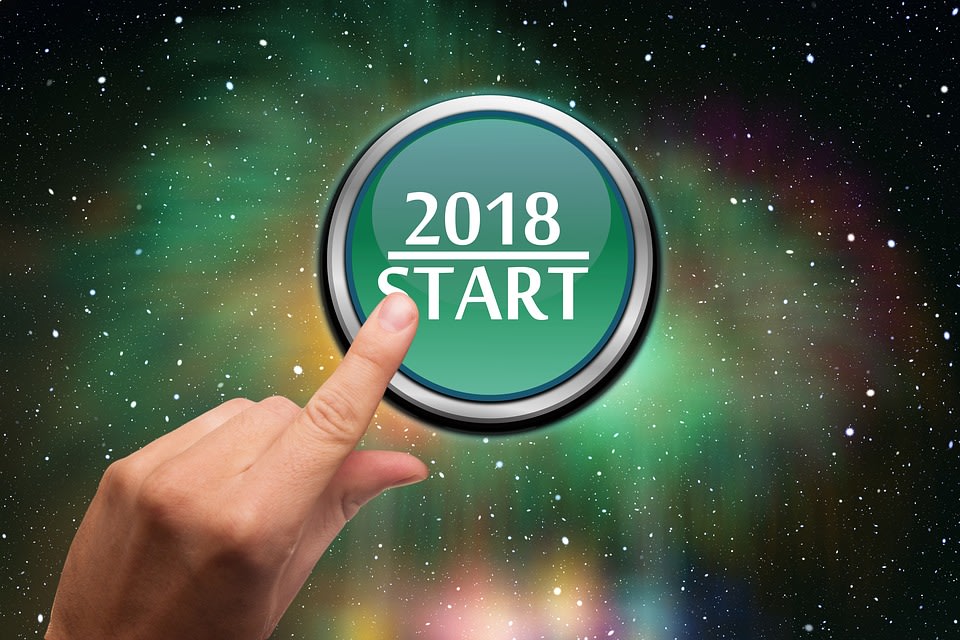How to Start Freelancing
You keep hearing about freelancing almost as much as you hear about Bitcoin. Some of your friends are freelancers or gig workers, while others have never heard the term. You're a little bit interested, but are unsure about where to start. Are you ready?

You keep hearing about freelancing almost as much as you hear about Bitcoin. Some of your friends are freelancers or gig workers, while others have never heard the term. You're a little bit interested, but are unsure about where to start. Are you ready? Continue reading to see exactly how you can start freelancing.
Select a Skill and a Niche

There are a lot of differences between freelancing and working a traditional job. Instead of being the hourly employee that does everything a boss asks (whether or not you're qualified), you're being called upon for your specific skills and talents within a selected niche.
What is a skill? Freelancers typically offer their skills using a computer. Web design, programming, writing, and even legal help are all offered skills by freelancers. It is true, there are freelance skills that are service based, which involve sharing a room in your house, driving people around, or running errands. On goLance, the positions offered maintain the principal of freedom. You cannot drive people around while you are on vacation, but you can work on your goLance contract at a resort in Morocco. The one thing to keep in mind will always be the niche.
What is a niche? A niche is a very specific area in which freelancers work in. An example of a niche for writers, would be a blog content writer, a biography writer, or even a sci-fi short story writer. No matter how great a writer is, they will not be able to focus on developing their skills in every single niche available. It is possible for a freelancer writer to have extraordinary skills in writing, but it is rare to see a very successful writer that can write in every possible niche. Selecting a niche is important, because it is what you are most passionate about when it concerns your skills.
As a programmer, there are a multitude of languages that are commonly used. A lot of programmers begin with C or C++, but find a niche in Python, Angular JS, or other very specific languages. If everyone knows HTML, consider the competition that you'll have in making a career out of it, and the competition against website builders such as WordPress. A niche is a MUST to succeed.
Create a Profile
Yes, we're goLance. Yes, we have freelance positions available. If you're serious about becoming a freelancer, create a profile and finish it. You might be surprised at how many people will sign up to goLance, only to abandon their profiles on the same day. The first test of freelancing is discipline and time management. You can't "come back to it" when its a client's contract, and putting in the minimum work won't take you anywhere. The more time and effort you spend on optimizing a profile, the more likely you'll be offered positions directly from clients. Your profile is the forefront of your digital reputation, so ensure that it is professional.
Add a Portfolio
The portfolio is a very important element to your profile. This is where a client looks to see your best examples of the service that you provide. As a new freelancer, you need to have a portfolio showcasing your abilities. If you don't have a portfolio, you'll need to make one.
For example, if you're a writer and you have no professional experience as an Academic Writer: use your school work, or write a paper! If you want to be a blog content writer, simply re-write an existing blog, or write about a topic that you know about. If your examples are amazing, clients will hire you. Gone are the days of needing advanced education to land a job. This is freelancing, not working full-time for a pension. If you can prove that you are capable of finishing a project to the client's requirements, then you are already ahead.
Submit Proposals
The next step is to find relevant jobs in your skill level. Utilize the job filter to find available positions, and then begin submitting proposals. It's OK to submit proposals for a position that you're overqualified or under-qualified for. We'll explain this later. Submitting proposals involves writing a cover letter to the client when you apply for the position. It seems similar to a traditional job, but remember that you're submitting directly to the client. There isn't a string of hiring managers and interviews to go through. Normally after submission, you'll get invited to a Skype interview or phone interview and thats it. When submitting for a job above or below your skill level: it will get you noticed. Be honest in your proposal. If you don't meet requirement X with experience Y, then explain your lack of X and Y, but still convey to the client your interest in the position because of your other skills and experiences. You never know, they might hire another freelancer and things don't work out. With that, you'll be fresh in their mind. Learn how to make your proposal stand out.
Be Prepared for Freelance Work

The worst possible thing that could happen is landing a contract, but not having the necessary place to conduct work. It's a good idea to stay away from family while you're freelancing, even though you'll still be at home. Ensure that you have a clean workspace, with all of your necessary equipment in reach. At minimal, you should have a laptop, internet connection, headphones or headset, and a web cam (if your computer doesn't have one built in). Be prepared to work, and keep your workspace organized. Make certain that you have the goMeter downloaded, and that you know how to use it.
You should also set a schedule for freelancing, so you don't overwork yourself, or lose track of time. Working remotely is a lot different than at a job, even if it's part-time. Remain on a schedule and things will go smoothly.
Quit Your Day Job (If You'd Like)
Freelancing is an amazing career filled with opportunities, learning, networking, and creating very unique projects. Quitting your job after your first contract isn't advisable, unless it is a very stable and long-term position. Ideally, you need to look at your required income to support your current lifestyle, and then calculate how much you'd need to make to support that through freelancing. Since the income of a freelancer rises and falls, you need to have financial stability when working. It can be very similar to a commission based sales position, where one month you're making gold, and others you're not making as much. Calculate your monthly needs, and then bank the rest in times of feasting, and if famine comes around, you'll have enough to live off of until your next contract. You can read more about how freelancers should deal with money.
Why Should You Do It?

Becoming a full-time freelancer can be a difficult decision, and its solely yours to make. A lot of freelancers started part-time, and then realized if they went full-time with their experience, they would be earning more than their full-time job, while utilizing less time.
An average 40 hour work week, coupled with a 30 minute commute, will consume roughly 55 hours per week. When you factor in getting ready/dressed, commuting, working, taking a lunch break at work, commuting home, and then decompressing from your work day, you'll be spending around 11 hours per day for which only 8 were paid for. That's only 72% productive at maximum.
If you have an hourly freelance contract to work 35 hours per week, you'll spend exactly 35 hours in front of your computer while using the goMeter. You can work on the contract before or after a doctor's appointment, after your child's soccer game, or even on the weekends if you had a really busy week. The possibilities are endless: you only need to find the time to work.
What would you do with an extra 20 hours per week? Sleep in? Start a business? Find more freelance work? Enjoy time with your family? The choice is yours.
Final Thoughts
Freelancing is taking the world by storm, literally. The statistics show that freelancing will rise from 34% of the American workforce to over 50% within the next two years. This doesn't mean that you have to become a freelancer, but simply that others will. You can start freelancing by signing up and creating a profile on goLance. You'll have a foot in the door and be ready to change careers in no time.

